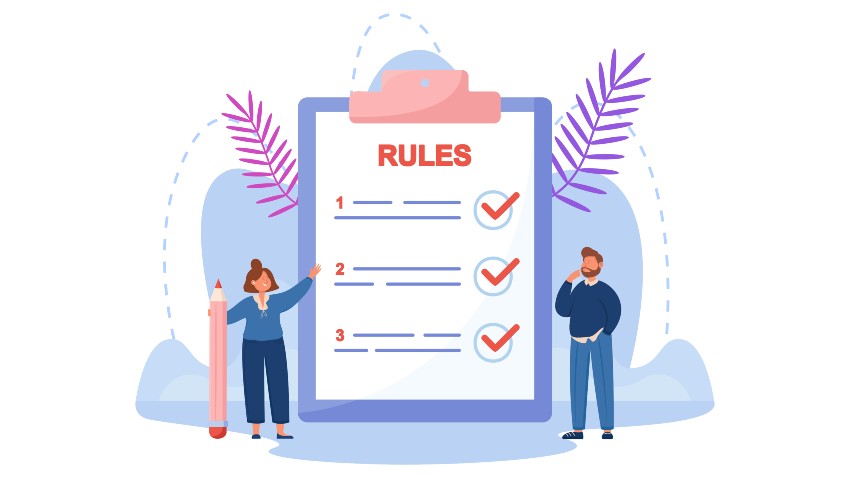Rules are established principles or guidelines that dictate how something should be done or how situations should be handled. They are used to regulate behavior, ensure fairness, and maintain order in various contexts, such as society, organizations, games, and social settings.
Rules can be formal or informal. Formal rules are codified and enforced by a governing body, such as laws, regulations, or contracts. Informal rules are unwritten and enforced by social pressure, such as social norms or etiquette.
Rules can be helpful in many ways. They can:
- Ensure fairness by creating a level playing field for everyone.
- Protect people from harm by setting standards of behavior.
- Maintain order by providing a framework for behavior.
However, rules can also be seen as restrictive or unfair. It is important to consider the purpose of a rule before deciding whether or not to follow it.
For example, a speed limit may be seen as restrictive, but it is also designed to protect people from harm. A dress code may be seen as unfair, but it is also designed to maintain order in a workplace.
Ultimately, the decision of whether or not to follow a rule is a personal one. However, it is important to be aware of the potential benefits and drawbacks of rules before making a decision.
Benefits of Rules
- Ensure fairness. Rules can help to ensure that everyone is treated fairly, regardless of their background or circumstances. For example, laws that prohibit discrimination on the basis of race, religion, or gender help to ensure that everyone has an equal opportunity to succeed.
- Protect people. Rules can help to protect people from harm, both physical and psychological. For example, traffic laws help to keep people safe on the road, and workplace safety regulations help to protect workers from injury.
- Maintain order. By providing a framework for behavior, rules help to keep society running smoothly. This is especially important in large and complex societies, where it would be difficult to maintain order without rules.
Drawbacks of Rules
- Can be restrictive. Rules can sometimes limit our freedom of choice. For example, speed limits restrict how fast we can drive, and dress codes restrict what we can wear.
- Can be unfair. If rules are not applied fairly, they can lead to discrimination and injustice. For example, if laws are not enforced equally, they can be used to target certain groups of people.
- Can be difficult to change. Once a rule is in place, it can be difficult to change, even if it is no longer needed or is no longer fair. This can make it difficult to adapt to new circumstances.
Conclusion
Rules are an important part of society. They can help to ensure fairness, protect people, and maintain order. However, it is important to be aware of the potential drawbacks of rules and to make sure that they are applied fairly.

Comments
Post a Comment
comment and like